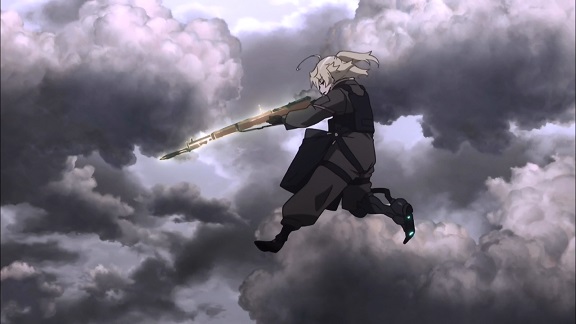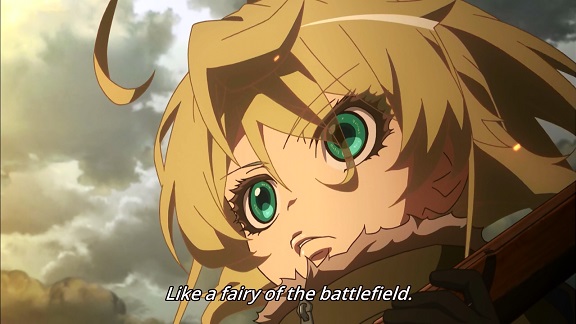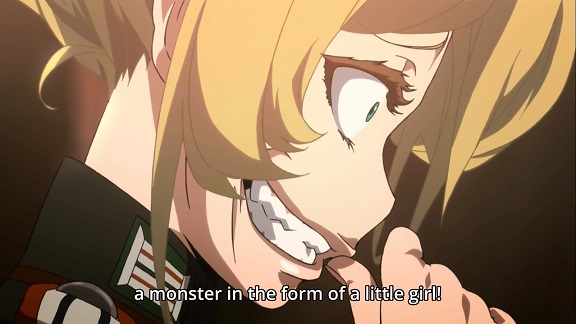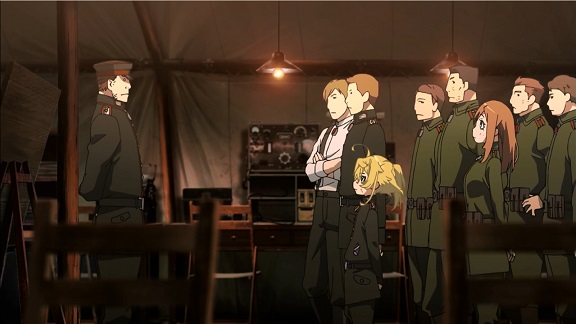Youjo Senki proved that war crimes are fine as long as they’re performed by a cute blonde ten year old girl.
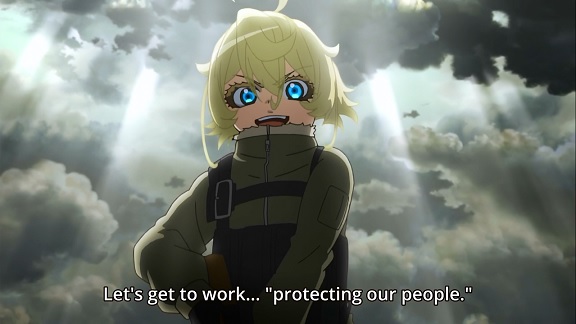
Well, not really. The show never quite spelled it out for you, but it was always clear that Tanya was fighting on the wrong side, was in fact the baddie, even if there was always the danger of the audience sympathising with her too much because she was cute and badass. There’s a fine line between making Tanya sympathetic and the hero and Youjo Senki managed to keep this distinction. That’s why the ending was great. The empire has finally defeated its enemies, only to see them refusing to acknowledge defeat and new, more powerful enemies rising up to continue the fight. For all its power Tanya knows the empire is probably doomed yet she has no choice but to keep fighting. A perfect stopping point while leaving room for a possible sequel.
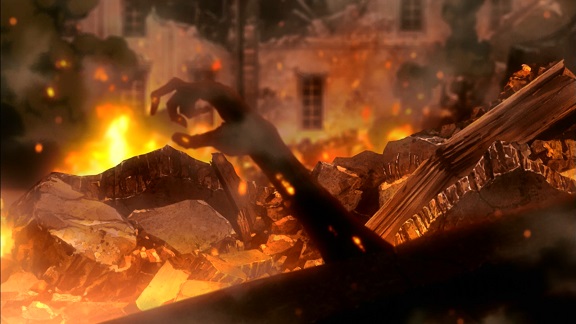
The core of the series for me lies in episode eight, in which a city that’s an important transport centre for the frontlines, revolts against the Empire and Tanya’s batellion is ordered to help put it down. What happens next is reminiscent of what happened during the German invasion of Belgium in World War I. Fury at the continued resistance of the Belgian Amry, which was supposed to stand aside to let the Germans through, as well as unfounded fears of civilian snipers led to a number of atrocities, most noticable the destruction of the university city of Leuven and the burning of its library by artillery fire. The same sort of destruction is brought to the city in Youjo Senki. After Tanya and her batallion suppress the enemy mages, an artillery bombardment is let loose on the already partially destroyed city, with predictable consequences.
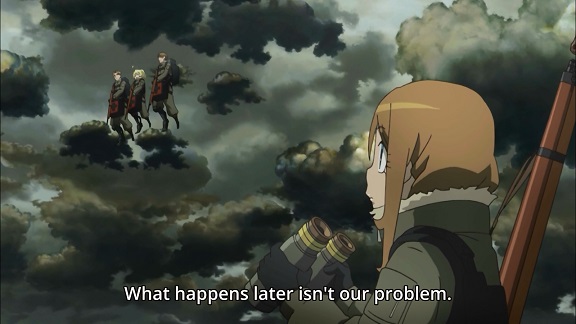
And throughout the episode, Tanya is only occupied with keeping her own hands clean, not with stopping the atrocity or finding other ways to capture the city. It’s here that Tanya crossed the moral event horizon. No longer edgy antihero, she’s a straight up villain and while Youjo Senki remains sympathetic to her, keeps showing us her point of view, it is clear we are meant to see her that way. Of course, there are still asshats cheering Tanya on, but that’s not the series fault. Unlike a series like GATE or (ugh) The Irregular at Magic High School, Tanya is never shown as the hero, just the protagonist. In a sense, you could see Tanya as anime’s Flashman, a thoroughly nasty but sympathetic enough character that you want them to win, even though you know they don’t deserve to.
